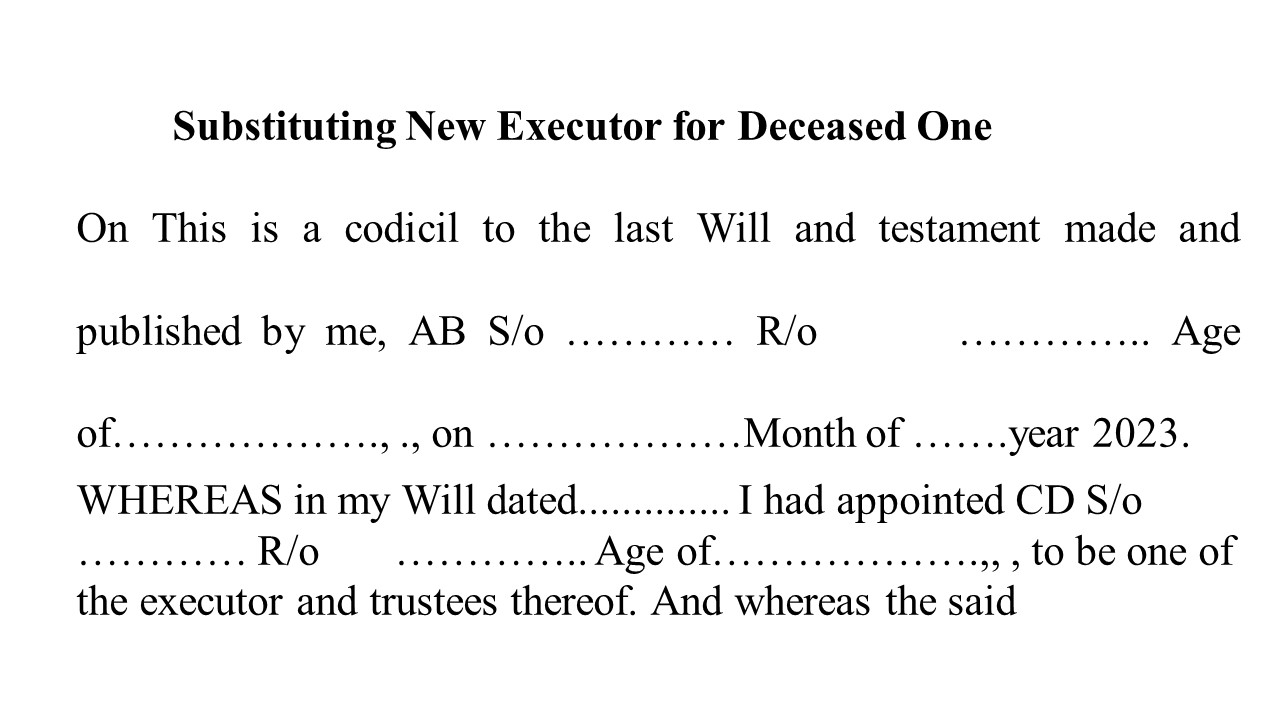Reviews
M.R.P. : ₹ 212.40
(Inclusive of all taxes)
Details
- When the named executor of a will passes away or is unable or unwilling to carry out their duties, it becomes necessary to substitute a new executor to manage the administration of the estate. This process involves appointing a replacement executor to fulfill the responsibilities outlined in the will. Here are the general steps involved in substituting a new executor for a deceased or incapacitated one in a will: Review the Will: The first step is to carefully review the terms and provisions of the existing will. The will may contain information about how a new executor can be appointed in case the original executor is unable to serve. Determine the Need for a Replacement: Assess whether it is necessary to substitute the executor. This typically occurs if the original executor is deceased, has declined the role, or is unable to fulfill their responsibilities for any reason. Identify an Alternate Executor: If the will designates an alternate or successor executor, the alternate can assume the role without the need for court intervention. This person is typically named as a backup executor in case the primary executor cannot serve.
